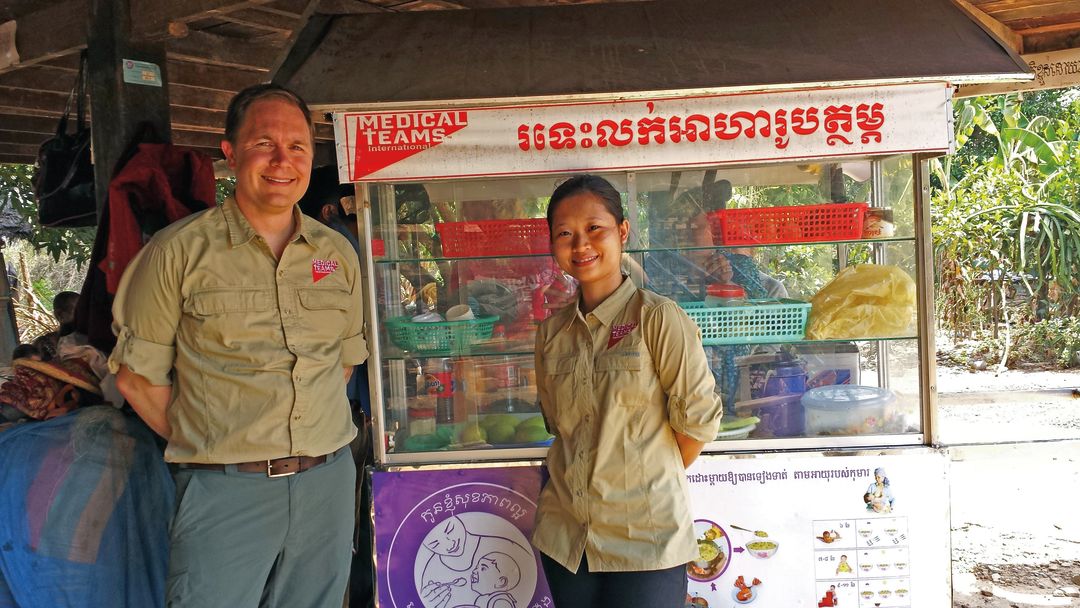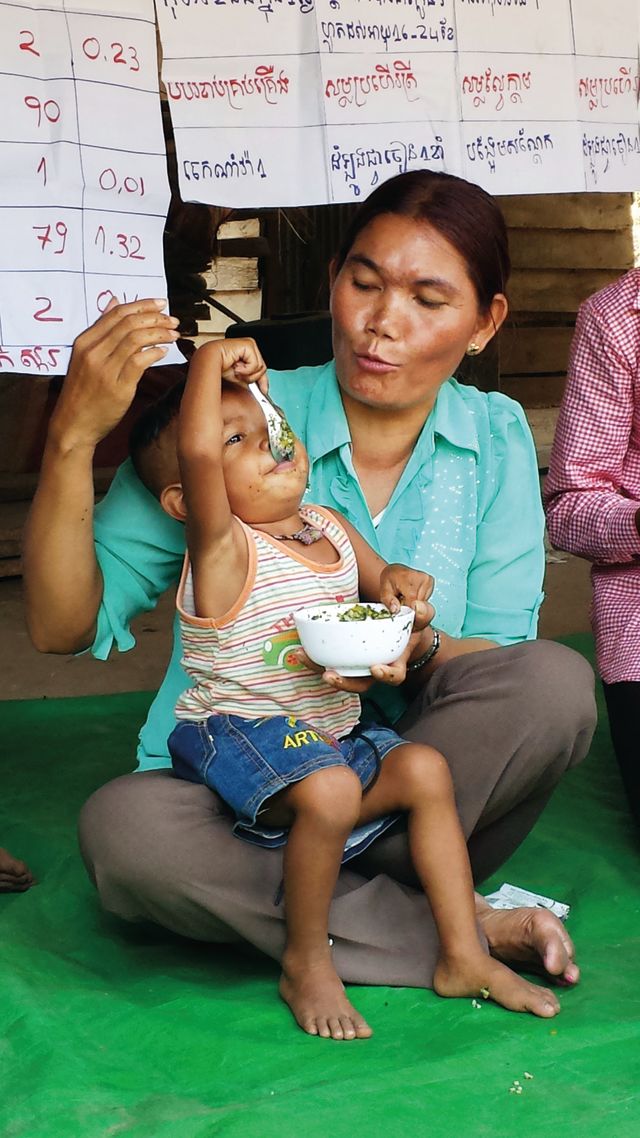Can Food Carts from Oregon Help Rural Cambodia?

Medical Teams International volunteers with a cart in Oddar Meanchey Province
Image: Medical Teams International
When Portland chef Diane Morgan toured a remote village deep in the Cambodian province of Oddar Meanchey last year, she found a community still barely recovered from the brutal Khmer Rouge regime of the 1970s: single-room houses with bedrolls lining the walls, chickens and pigs clucking around steaming pots and ceramic grills, people tending small fish ponds.
“It’s bare-bones,” Morgan says. “It’s the size of two blocks in Portland. Everyone knows each other.”

A mother feeding her child borbor
Image: Medical Teams International
And Morgan noticed something else: a strangely high ratio of women to men. With the average pay in the area equating to about $2.60 a day, men often search for jobs far away from home as migrant workers. Families, primarily women and children, stay behind to tend to the local rice fields and gardens.
Morgan, a Chicago-trained chef and James Beard Award–winning cookbook author, was there at the invitation of Medical Teams International, a Tigard-based nonprofit that has been dispatching medical volunteers and supplies to war-torn and poverty-stricken areas in Latin America, Africa, and Asia since 1979. Medical Teams’ goal? Try to help improve the diet of the locals using a tool familiar to Portlanders: the food cart.
Despite the roving chickens, nutritious home-cooked meals are hard to come by. The Cambodian staple is borbor, a rice porridge made with flaky whitefish or pork, galangal root, herbs, and other fresh ingredients, with a consistency perfect for feeding children under 2. But in Northern Cambodia, the borbor can be thin and watery to stretch a limited rice supply, with chunks of meat too large or tough for babies to chew. A day working in the rice fields leaves little time or energy to shop for groceries and cook. Many rely on processed Western food like potato chips, resulting in abnormally high malnutrition rates for the area’s children.
“Most moms won’t cook; they can’t cook,” says Medical Teams regional manager Connie Cummings. “They’ll buy the kids whatever snack food they can find because [it’s] cheap and easy to buy.”
So last summer, the nonprofit hatched a different plan. With $25,240 to spend, they purchased pots, pans, and food carts costing $420 each and donated them to local women in 15 test villages in Northern Cambodia. Morgan taught classes on the basics of hygiene and making food for infants, while cart owners learned how to calculate profits and food costs, and maintain inventory. As a result, villagers can buy bowls of hot, thick, vegetable-rich borbor for 15 to 25 cents.
Morgan, who is also helping develop recipes for the carts, and Medical Teams plan to return to the villages this fall for a full assessment of the program, a first for the nonprofit.
“The first time I walked into a grocery store when I got home I stopped in my tracks,” Morgan says. “We have so much.”




